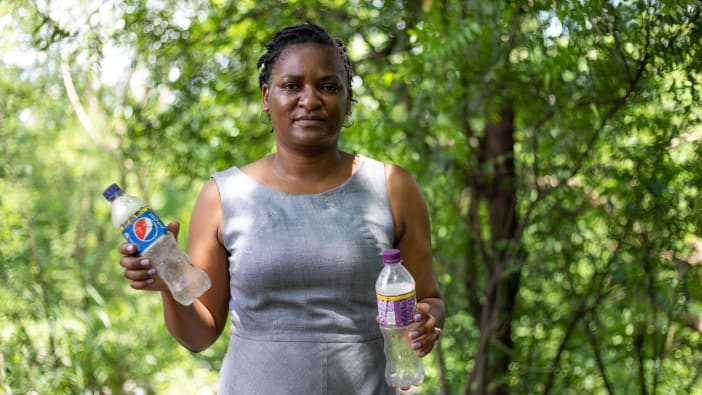A couple of years after the anti-plastic law in Malawi was passed, the Tearfund Malawi team, Malawi partners and churches, and other peer organizations met in South Africa for the Creation Care Conference. After learning more about the theological basis of caring for the environment and the creation care movement, the group from Malawi came together and formed the Malawi Creation Care Network (MCCN). When they returned to Malawi, they knew what their first campaign would be about: the suspended plastic ban.
In Malawi on World Environmental Day, MCCN began its campaign to reinstate Malawi’s plastic ban by raising awareness of the effects of plastic pollution via various media platforms in the country. They also organised demonstrations with churches, students, youth clubs, and peer organisations throughout the country to bring their petition to uphold Malawi’s anti-plastic law to the attention of the government. MCCN then met with government officials to discuss lifting the injunction. The case between the
government and the plastics companies went to Malawi’s Supreme Court where it was reviewed. The court decided to lift the injunction against Malawi’s plastic ban.
The government of Malawi has now started fining the companies that were producing thin plastics in the country. Furthermore, although adoption of change can take time, when visiting a market in Malawi now, you will no longer see single-use plastic bags being used by the public.
MCCN has been encouraged by this change to further campaign for more environmental protection in Malawi. The partnerships and relationships built through this experience have laid the foundation for local movements to plant more trees in Malawi after years of deforestation and to ban plastic bottles in the country. This change has taken hold through MCCN empowering students to raise their voices on this important matter and MCCN equipping churches to understand their role in the movement towards creation care.
The politicians of Malawi have taken notice of this shift in public attitude and the government has made it a priority to create jobs through waste management in Malawi. In fact, a mayor of a city in Malawi told MCCN that she was very happy to see such a change taking place and coming from the church! Malawi’s rivers, livestock, and drainage gain a reprieve as thin plastics have been banned from the country and MCCN is looking forward to continuing advancing environmental care.






